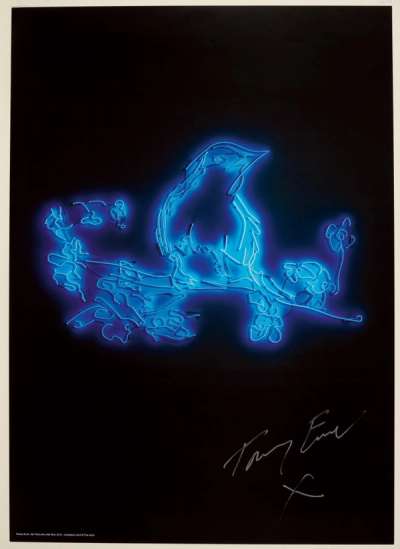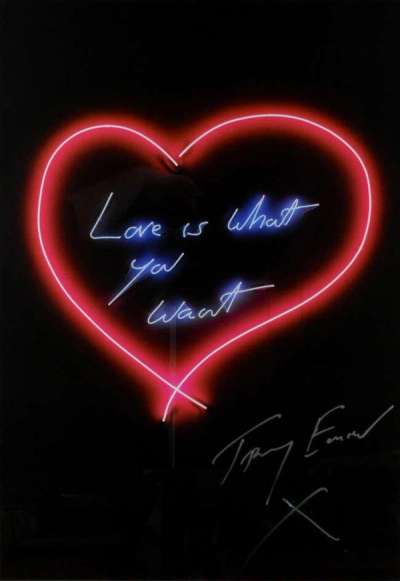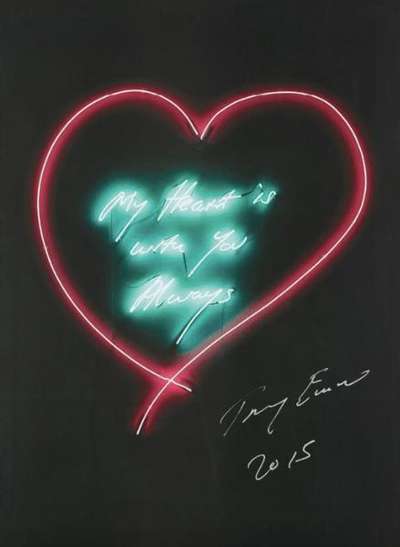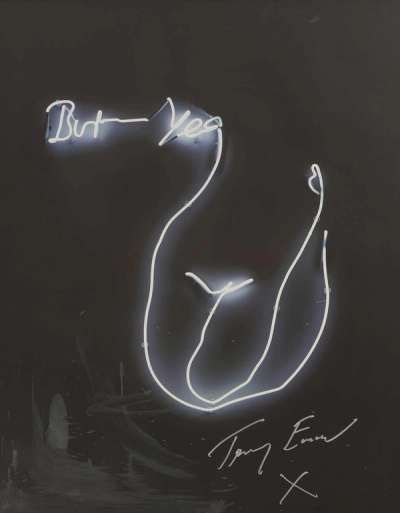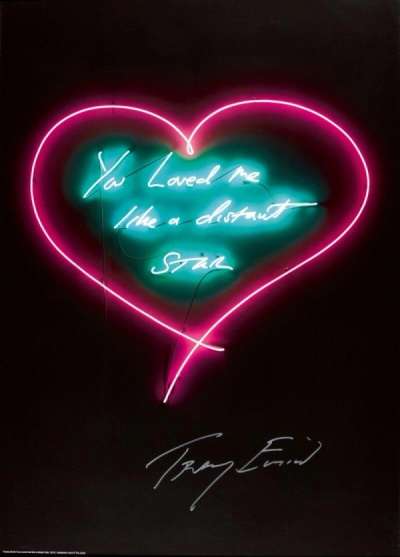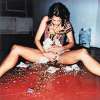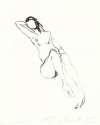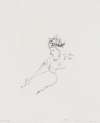The
Neons
Since the 1990s, Tracy Emin began introducing to the medium of Neons a sense of urgency and forceful emotion, conveyed through scrawled handwriting, misspellings, and other intimate scribblings. Colour plays a decisive role, as each work from the series employs a hue that, through synaesthesia, matches its individual message.
Tracey Emin The Neons For sale
The Neons Value (5 Years)
With £43359 in the past 12 months, Tracey Emin's The Neons series is one of the most actively traded in the market. Prices have varied significantly – from £340 to £5000 – driven by fluctuations in factors like condition, provenance, and market timing. Over the past 12 months, the average selling price was £1111, with an average annual growth rate of -4.77% across the series.
The Neons Market value
Auction Results
| Artwork | Auction Date | Auction House | Return to Seller | Hammer Price | Buyer Paid |
|---|---|---|---|---|---|
 My Favourite Little Bird Tracey Emin Signed Print | 11 Feb 2026 | Forum Auctions London | £595 | £700 | £900 |
 The Kiss Was Beautiful Tracey Emin Signed Print | 10 Dec 2025 | Tate Ward Auctions | £765 | £900 | £1,200 |
 You Loved Me Like A Distant Star Tracey Emin Signed Print | 10 Dec 2025 | Tate Ward Auctions | £978 | £1,150 | £1,500 |
 But Yea Tracey Emin Signed Print | 10 Dec 2025 | Tate Ward Auctions | £595 | £700 | £950 |
 Love Is What You Want Tracey Emin Signed Print | 10 Dec 2025 | Tate Ward Auctions | £978 | £1,150 | £1,500 |
 My Heart Is With You Always (black) Tracey Emin Signed Print | 10 Dec 2025 | Tate Ward Auctions | £1,020 | £1,200 | £1,650 |
 I Promise To Love You Tracey Emin Signed Print | 20 Nov 2025 | Bonhams New Bond Street | £935 | £1,100 | £1,400 |
Sell Your Art
with Us
with Us
Join Our Network of Collectors. Buy, Sell and Track Demand
Meaning & Analysis
Tracey Emin uses neon as an artistic medium like no other artist before has ever done. Neons have been around since the early 1960s, and have featured in the works of Bruce Nauman, Dan Flavin or Glenn Ligon. Emin stands out, however, as the first artist to bring into such a commercial-focused medium her own intimate and emotional world of love, suffering and loss. This is evident through Emin’s choice of using her own handwriting for the neons, unlike the more predominant custom of using impersonal capital letters. Emin’s handwriting, as per her signature style, is hand-scrawled, written with her trademark left-handed style and replete with misspellings that endow the writing with such urgency and immediacy to them, as well as with emotional poignancy. The artist herself, her emotional life made of longing, comes to life through these works, bending the impersonal and cold character of the medium to Emin’s interest in diaristic and unapologetic artworks.
Even with neons, Emin finds the ability to shape the medium to her restless creativity, creating a broad and varying range of images. Some of the works in this series are made entirely of writing, whereas others fully display Emin’s creative range and ability with highly complex visual depictions, as in My Favourite Little Bird. Some present a mix of both, as in But Yea, where the text element seamlessly merges with her typical stylised visual depictions of female torsos, which is also available as a sketch (But Yeh).
Colour too plays a decisive role in Emin’s works. According to the artist, each neon has a different colour that matches the feelings and message behind the work. As Bonnie Clearwater remarks, Emin’s palette recalls Rothko’s palettes of pink, yellow and pale blue. The artist writes the words first, and then through a process of synesthesia she associates a colour, stating that “some just can’t be pink and some can’t be white”.
